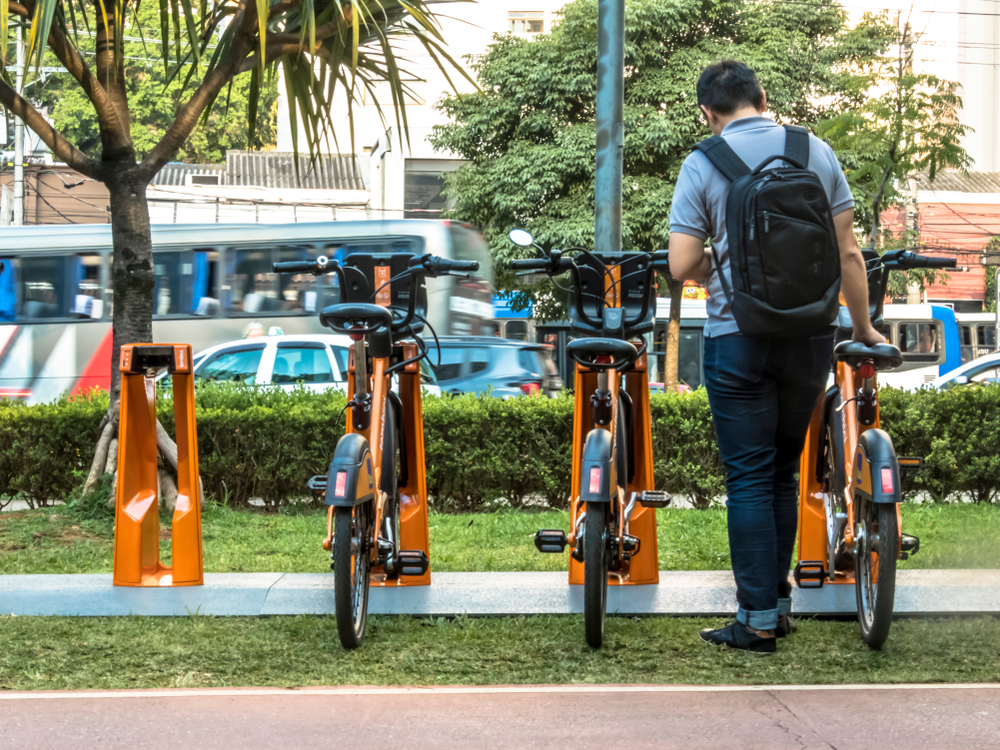Ride-hailing company Uber has announced an agreement with Brazilian bike-sharing company Tembici to gradually make electric and conventional bicycles available on its app in Latin America.
The partnership begins in Recife, a city in northeast Brazil. It will then be expanded to other Brazilian cities where Tembici operates sponsored by the bank Itaú, namely São Paulo, Rio de Janeiro, Brasília, Salvador, and Porto Alegre. Subsequently, other Latin American cities, such as Santiago (Chile), Buenos Aires (Argentina), and Bogotá (Colombia) will be considered for the service.
Having car-free options in its app is part of Uber’s strategy to achieve zero carbon emissions by 2040, Annie Duvnjak, Uber’s global head of micro-mobility, said in a statement. The new service will be rolled out gradually; there is as of yet no set date for it to be widely available.
Earlier this year, Tembici obtained a BRL 160 million (USD 31.7 million) loan from Brazil’s National Development Bank BNDES to expand its factories’ capacity in Manaus, Amazonas state, and Extrema, Minas Gerais state. The financing is part of a BRL 274 million three-year investment plan.
As a result, the company hopes to end 2023 with 30,000 bicycles on the streets of Latin America — a third of which will be electric.
Tembici claims to be the largest bike-sharing operator in Latin America in terms of trips volume and the number of systems and bikes available (including the 2,500 bikes from the iFood Pedal program, a partnership with iFood, the leading food delivery app in Brazil). The platform says the region has just over 45,500 shared bikes, 18,800 of which are from Tembici.
In a sector that is rife with short-lived ventures, Tembici appears to have found the ideal business model to offer micro-mobility services. The startup only goes to a city when it can count on sponsorship from a partner company. It counts Itaú, iFood, Mastercard, and Vanti (Colombia’s local energy company) among some of its partners.
Income from user membership accounted for more than half of the platform’s earnings in 2021, when the company posted a revenue of BRL 140 million. Tembici aimed to double this result in 2022 but has yet to disclose final figures for last year.
In addition, recurring revenue from advertising on Tembici stations’ panels is also a growing source of income. Nevertheless, the platform hopes to maintain 60-70 percent of its earnings coming from users.


 Search
Search






































